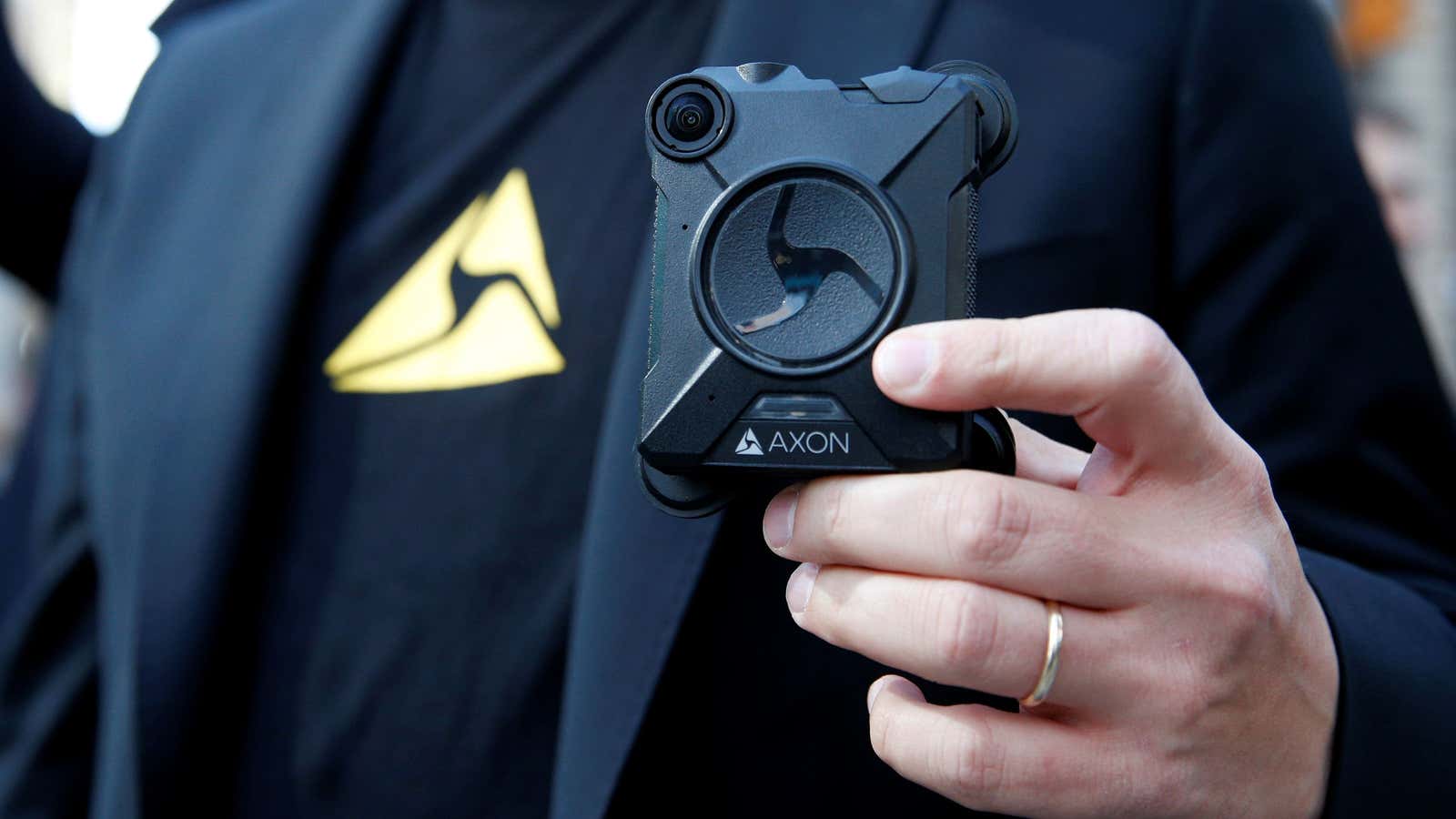Facial-recognition technology has been facing public scrutiny in past weeks, especially since an American Civil Liberty Union experiment using Amazon’s facial recognition erroneously matched members of US Congress to a directory of mugshots of alleged criminals.
Axon, the country’s biggest supplier of body cameras, doesn’t want to face similar backlash. The company’s CEO Rick Smith told investors yesterday in the company’s quarterly earnings call that Axon isn’t yet working on facial recognition to integrate into its products.
There’s a simple reason Axon isn’t planning on integrating the tech right now: It doesn’t work well enough yet. The “accuracy thresholds,” said Smith, are not “where they need to be to be making operational decisions off the facial recognition.” Smith suggested that rolling out facial-recognition at this point could scuttle the tech’s future in body cameras. “This is one where we think you don’t want to be premature and end up either where you have technical failures with disastrous outcomes or…there’s some unintended use-case where it ends up being unacceptable publicly in terms of long-term use of the technology.”
In addition, Smith noted there are accountability and privacy measures that haven’t yet been worked out with the tech’s application in body cameras. Commercialization would only come, Smith said, once all those issues had been resolved, and Axon had ensured “that it will be acceptable by the public in large.”
It’s likely that day will come, and Axon’s products will feature facial recognition, as well as a slew of other AI tools. The company is planning to launch an AI-based tool in 2019 that would analyze video and audio from police cameras to help create a timeline of an event, assisting officers in writing up more detailed reports. Smith described his intentions for the product to Quartz in 2017.
In this way, Axon is positioning itself as a competitor to cloud-service provider like Microsoft or Amazon. A police department could store its terabytes of video anywhere—but if you put it on Axon’s cloud, you get to use its AI tools to analyze the footage. The body cameras themselves are another tool to locking police departments into Axon’s cloud offerings, since the hardware is made to work seamlessly with the cloud software.
Axon’s body-camera business made up nearly 40% of the company’s revenue in 2017, with a bulk of that coming from its cloud subscriptions.
